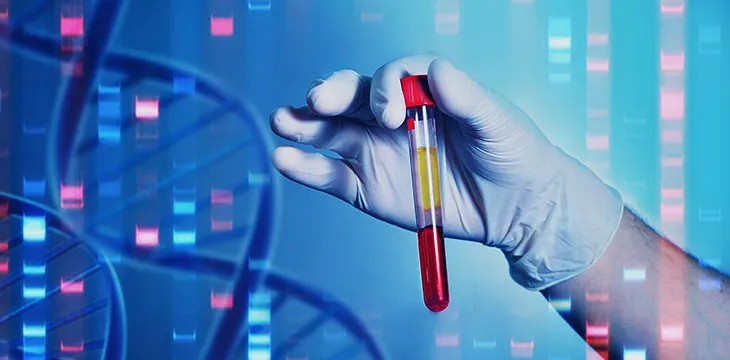|
Getting your Trinity Audio player ready...
|
It’s now possible to hide your crypto wallet password inside a tube of DNA thanks to a startup called Carverr. Carverr has developed a system that uses synthetic DNA, the basic building block of virtually every living creature, as a method of storing data.
Synthetic DNA has already been tested as a vessel for storing a variety of information, including documents, images and even operating systems. Using DNA for something as critical and fragile as a crypto wallet password seems to make perfect sense. If a wallet password is lost, so is the crypto and there is almost no chance of it every being recuperated. DNA doesn’t change, it cannot be forgotten or lost and it is easy to recall.
Put in simple terms, a data file, which is nothing more than zeros and ones, makes creating a storage system fairly simple. That same concept can be applied to the nucleotides that comprise human DNA, designated A,T, C and G.
The service doesn’t come cheap—it costs around $1,000. However, if someone wants to safely protect tens of thousands of dollars-worth of crypto for life, the price is definitely worth it. Carverr has already had 28 customers sign up to use the service.
According to Vishaal Bhuyan, Carverr co-founder and CEO, DNA is simply a different—and better—data encryption tool. It will last longer and is much more secure than storing data on a hard drive, which can fail without warning. He explains, “DNA is the only thing that won’t become obsolete. So the way I look at it, this is a trust or 401(k) that you can allocate some of your assets to and keep for a very, very long period of time.”
Since the DNA is stored in a vial by the wallet holder for future retrieval (imagine putting it in the freezer next to the Rocky Road ice cream), there may be concern that the vial itself could be stolen, which could result in unauthorized access to the wallet. However, Carverr’s proprietary binary-to-DNA conversion system encrypts the data, making it useless to anyone who doesn’t have the encryption key.
The technology is relatively new, but as it becomes more accepted, the cost will certainly decrease. Large-scale projects have already been performed by a number of companies that could lead to mainstream adoption. Last February, for example, Microsoft and the University of Washington successfully stored 200 megabytes of data on 13 million DNA oligonucleotides.

 07-09-2025
07-09-2025 





